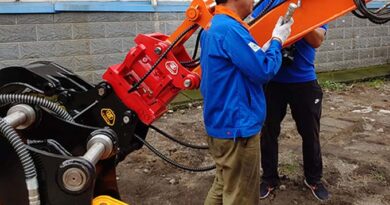All About Sustainable Construction
As one of the primary consumers of natural resources and minerals, the construction industry has had to adapt to become more sustainable. Concerns about climate change and dwindling natural resources have never been so rife, which is what makes sustainability so important. It’s for this reason that construction industries have felt added pressure to do something about their impact on the environment. With this being said, what is sustainable construction and how is this set to impact the world as we know it? Discover more about sustainable construction below.
What is Sustainable Construction?
As the name suggests, sustainable construction is all about introducing recyclable and renewable materials into the building sector. This is done with the intention of minimizing the likes of toxic waste and energy consumption, as these initiatives reduce the extent at which the environment is affected by the industry. Other measures include the implementation of green technology, energy efficiency, and sustainable construction procedures.
The construction industry as regarded as the one that uses the most global resources. In fact, it’s responsible for half of the global consumption of raw materials and contributes heavily to waste production. As a result, the reinvention of the construction industry can have a significant impact on the effects of climate change.
Methods of Sustainable Construction
Due to an increased interest in energy conservation and sustainability, practices, materials, and technology have massively advanced. From this, the overall efficiency has skyrocketed. For instance, these technological developments have meant that renewable, lighter, and more robust materials have been constructed, allowing practices to be more environmentally friendly.
This positive impact on the environment is achieved via the reduction of the carbon footprint; however, the industry isn’t stopping at materials. Other methods of optimizing sustainability include:
- The use of recycled and sustainable materials
- The conservation of energy
- Recycling food containers, avoiding smoking, and treating water on-site
- Better management of construction sites
- The transformation of old buildings
- The construction of green buildings
- The control of waste management
- The restriction of materials used
Sustainable Construction Benefits
Not only is sustainable construction better for the environment, but it’s also beneficial to people’s wellbeing. The advantages of sustainable construction include:
- The reduction of carbon footprint, as buildings are responsible for 30% of greenhouse gas emissions. This means that revised practices can help significantly reduce the negative impact that the construction industry has on the environment.
- Reduced material costs, as the use of eco-friendly materials can lower material expenses significantly. This is because newly developed eco-friendly materials can be more durable and of a better quality, which allows for a longer lifespan.
- Enhanced cost efficiency, as buildings won’t be required to pay as much in the way of energy and water bills. As a result, more money can be invested in product development and labor costs.
- A boosted economy, as the construction industry is a major player in the American economy. Consequently, more workers will be required, and more jobs will be created.
- Waste reduction, which allows for pollution to decrease and the effects of climate change to be slowed down.
- The promotion of a healthier existence, as improving our surroundings has a significant impact on our emotional, mental, and physical health. Everyday appliances have been modernized via the ever-evolving technology and people have noticed a better quality of life from such.
Sustainable Construction Importance
As previously mentioned, the detrimental effects of climate change have meant that sustainable construction practices have never been more important than they are now. In order to create a safer and cleaner future, adjustments need to be made. Sustainable construction is the future.




